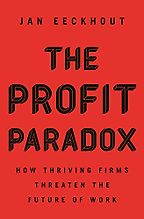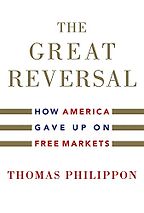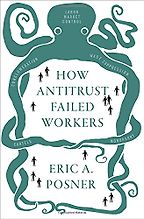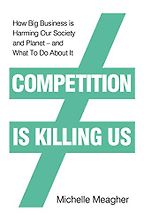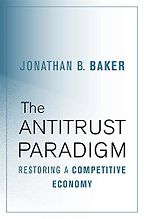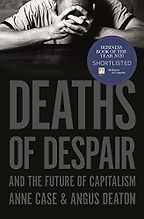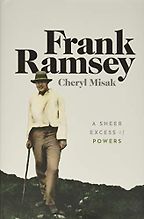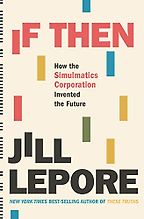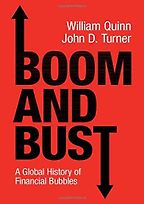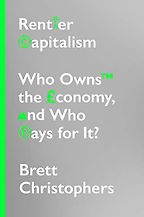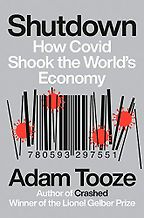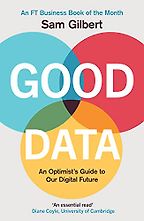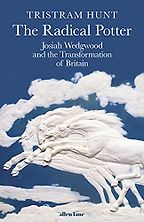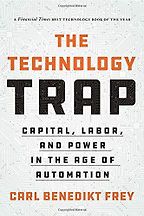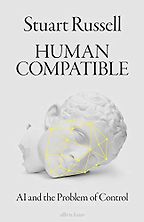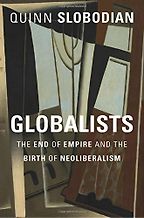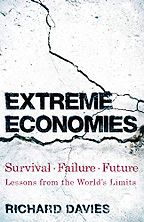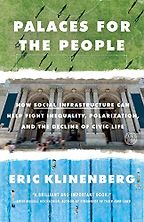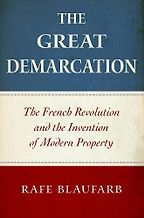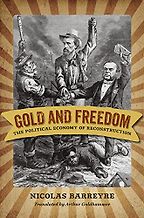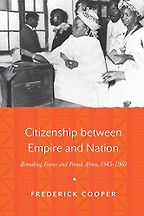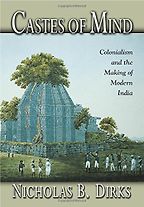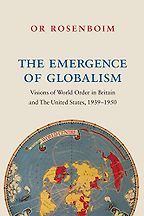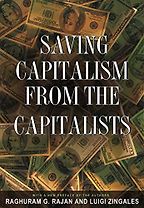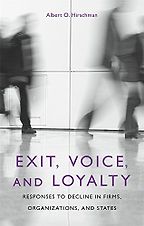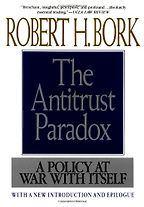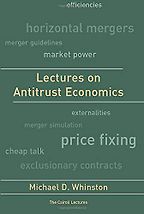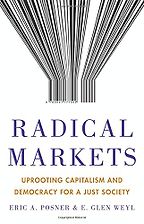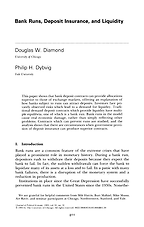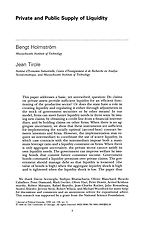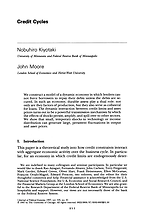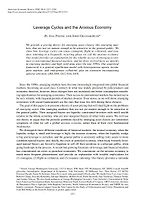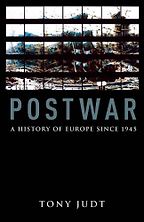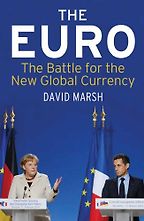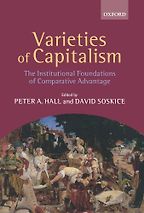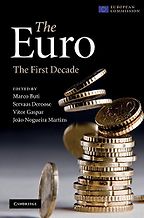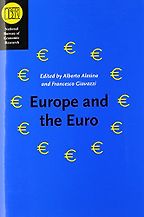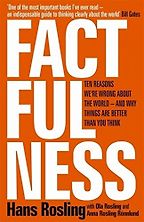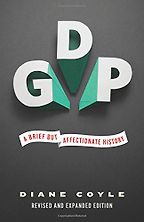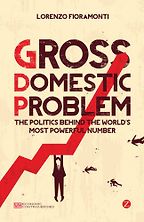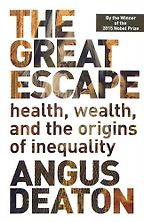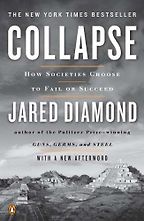-

1
The Profit Paradox: How Thriving Firms Threaten the Future of Work
by Jan Eeckhout -

2
The Great Reversal: How America Gave up on Free Markets
by Thomas Philippon -

3
How Antitrust Failed Workers
by Eric A. Posner -

4
Competition is Killing Us: How Big Business is Harming Our Society and Planet
by Michelle Meagher -

5
The Antitrust Paradigm: Restoring a Competitive Economy
by Jonathan B. Baker
The best books on Antitrust, recommended by Howard Smith
The best books on Antitrust, recommended by Howard Smith
Across sectors and around the world fewer and fewer companies dominate the economy, with negative consequences for consumers, workers and the economy as a whole. Here, Oxford economist Howard Smith introduces books on ‘antitrust,’ a key policy tool for ensuring that markets are actually functioning properly in market economies.
-

1
Deaths of Despair and the Future of Capitalism
by Angus Deaton & Anne Case -

2
Frank Ramsey: A Sheer Excess of Powers
by Cheryl Misak -

3
If Then: How the Simulmatics Corporation Invented the Future
by Jill Lepore -

4
Boom and Bust: A Global History of Financial Bubbles
by John D. Turner & William Quinn -

5
Rentier Capitalism: Who Owns the Economy, and Who Pays for It?
by Brett Christophers
The Best Economics Books of 2020, recommended by Diane Coyle
The Best Economics Books of 2020, recommended by Diane Coyle
The global economy has been hit by another massive and unexpected shock this year in the form of the pandemic, which is already having knock-on effects on how people think about economics. Here, Professor Diane Coyle of Cambridge University chooses the best economics books published in 2020.
-

1
Home in the World: A Memoir
by Amartya Sen -

2
Shutdown: How Covid Shook the World's Economy
by Adam Tooze -

3
Good Data: An Optimist's Guide to Our Digital Future
by Sam Gilbert -

4
Vaxxers: The Inside Story of the Oxford AstraZeneca Vaccine and the Race Against the Virus
by Catherine Green & Sarah Gilbert -

5
Radical Potter
by Tristram Hunt
The Best Economics Books of 2021, recommended by Diane Coyle
The Best Economics Books of 2021, recommended by Diane Coyle
From the education of a Nobel Prize-winning economist to debates about privacy and the drawbacks of global supply chains, Professor Diane Coyle of Cambridge University’s Bennett Institute for Public Policy chooses the best economics books of 2021. These are highly readable books that also shed important light on the Covid pandemic and the world we live in.
-

1
The Technology Trap: Capital, Labor, and Power in the Age of Automation
by Carl Benedikt Frey -

2
Human Compatible: Artificial Intelligence and the Problem of Control
by Stuart Russell -

3
Globalists: The End of Empire and the Birth of Neoliberalism
by Quinn Slobodian -

4
Extreme Economies
by Richard Davies -

5
Palaces for the People: How Social Infrastructure Can Help Fight Inequality, Polarization, and the Decline of Civic Life
by Eric Klinenberg
The Best Economics Books of 2019, recommended by Diane Coyle
The Best Economics Books of 2019, recommended by Diane Coyle
The urgency of the challenges facing society has led to a wonderful supply of books by leading thinkers on a variety of pressing topics. Economist Diane Coyle, a professor at the University of Cambridge and co-director of the Bennett Institute for Public Policy, recommends her top five economics books of 2019.
-

1
The Great Demarcation: The French Revolution and the Invention of Modern Property
by Rafe Blaufarb -

2
Gold and Freedom: The Political Economy of Reconstruction
by Nicolas Barreyre -

3
Citizenship between Empire and Nation: Remaking France and French Africa, 1945-1960
by Frederick Cooper -

4
Castes of Mind: Colonialism and the Making of Modern India
by Nicholas B. Dirks -

5
The Emergence of Globalism: Visions of World Order in Britain and the United States, 1939–1950
by Or Rosenboim
The best books on Historical Change and Economic Ideology, recommended by Thomas Piketty
The best books on Historical Change and Economic Ideology, recommended by Thomas Piketty
Throughout history, social and economic inequalities have been fueled and justified by different ideologies. French economist Thomas Piketty’s latest book, Capital and Ideology, looks at the advent and fall of these ideologies, and how they could evolve in the future. He recommends five great books to better understand these complex and always-evolving ideas, and their consequences for the world.
-

1
Currency and Credit
by R. G. Hawtrey -

2
Credit and State Theories of Money: The Contributions of A. Mitchell Innes
by L. Randall Wray -

3
The Nature of Money
by Geoffrey Ingham -

4
History of Economic Analysis
by Joseph A. Schumpeter -

5
The New Lombard Street: How the Fed Became the Dealer of Last Resort
by Perry Mehrling
The best books on Money, recommended by Samuel A. Chambers
The best books on Money, recommended by Samuel A. Chambers
Economists have offered two contrasting explanations of what money is and what it is for. For a long time, its function as a commodity, a store of value and a medium of exchange dominated economics textbooks. But, as Professor Samuel A. Chambers explains, understanding money as something closer to credit is more convincing and supported by other social sciences and what we’ve learned from the 2008 financial crisis.
-

1
Saving Capitalism from the Capitalists
by Luigi Zingales & Raghuram G Rajan -

2
Exit, Voice, and Loyalty
by Albert Hirschman -

3
Antitrust Paradox
by Robert H. Bork -

4
Lectures on Antitrust Economics
by Michael D. Whinston -

5
Radical Markets: Uprooting Capitalism and Democracy for a Just Society
by E. Glen Weyl & Eric A. Posner
The best books on Market Competition, recommended by Jason Furman
The best books on Market Competition, recommended by Jason Furman
Despite the large number of brands, most Americans buy their beer from just two companies. Consumer choice in the new digital economy is hardly better. Economist Jason Furman, chair of the Council of Economic Advisers under Barack Obama and now a professor at Harvard, recommends books to better understand market competition.
-

1
Bank Runs, Deposit Insurance and Liquidity (Journal of Political Economy, Vol. 91, No. 3, June 1983)
by Douglas Diamond and Philip Dybvig -

2
Private and Public Supply of Liquidity (Journal of Political Economy, Vol. 106, No. 1, February 1998)
by Bengt Holmstrom and Jean Tirole -

3
The Prudential Regulation of Banks
by Mathias Dewatripont and Jean Tirole -

4
Credit Cycles (Journal of Political Economy, Vol. 105, No. 2, April 1997)
by Nobuhiro Kiyotaki and John Moore -

5
Leverage Cycles and the Anxious Economy (American Economic Review, Vol. 98, No. 4, September 2008)
by Ana Fostel and John Geanakoplos
Economic Theory and the Financial Crisis: A Reading List, recommended by Eric Maskin
Economic Theory and the Financial Crisis: A Reading List, recommended by Eric Maskin
The 2007 Nobel Economics Prize winner says that, contrary to popular perception, economic theory did a good job of predicting the financial crisis, it’s just that no one was paying any attention. Eric Maskin talks us through four journal articles and one book on ‘economic theory and the financial crisis.’
The best books on The Euro, recommended by Barry Eichengreen
With hindsight, was the euro a good idea? Will it come through the present crisis intact or will any country decide to leave? And what happens if they do? Economist Barry Eichengreen recommends the best books on the euro.
-

1
Factfulness: Ten Reasons We're Wrong About The World — And Why Things Are Better Than You Think
by Hans Rosling -

2
GDP: A Brief but Affectionate History
by Diane Coyle -

3
Gross Domestic Problem: The Politics Behind the World's Most Powerful Number
by Lorenzo Fioramonti -

4
The Great Escape: Health, Wealth, and the Origins of Inequality
by Angus Deaton -

5
Collapse
by Jared Diamond
The best books on GDP, recommended by David Pilling
The best books on GDP, recommended by David Pilling
As we try to make the world a better place, how does a measure that started as a way of mobilizing for war in the 17th century help? Can it be improved on? Financial Times journalist David Pilling talks us through the best books to think about gross domestic product, or GDP.
